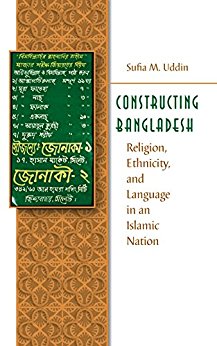Sufia M. Uddin makes an engaging and persuasive argument on a current topic of global concern, which is critical to the future of Bangladesh—the make-up of a modern Islamic identity. Inspired by the work of Talal Asad, her book maps a distinctive South Asian passage of Islam from pre-modern times to the recent past, presenting Bangladesh as an Islamic nation on its own terms. These terms are a product of long and layered histories, spanning Mughal rule, British regime, print culture and religious discourse on the one hand, and local customs, affective nuances, social relations and rival ‘visions of community’ on the other. The book sets off with a vivid picture of early Islamic discourse in the Bengali language, moving from tafsirs and nasihatnamas to the Qur’an’s translations and exegesis in a broad sweep. Sufia narrates how vernacular idioms joined this discursive world, and how the modern register of nation evolved its own rituals and symbols.
This region became East Pakistan after decolonization, but its peculiar blend of ethnicity, religion, and language eventually led to the founding of Bangladesh in 1971.


Wow, marvelous weblog structure! How long have you been running a
blog for? you make running a blog look easy. The full glance of your website is
great, let alone the content! You can see similar here sklep internetowy
Hey! Do you know if they make any plugins to help with Search Engine Optimization? I’m trying to
get my site to rank for some targeted keywords but I’m not seeing very good gains.
If you know of any please share. Many thanks! You can read similar article here:
Backlink Building